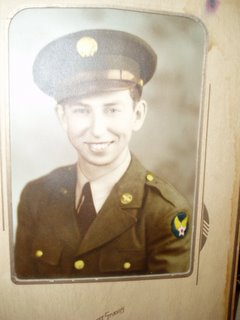
A little over a year ago, I was working at home one Friday morning, editing stories for the Stanford Social Innovation Review
Once I finished editing, I checked these messages, and immediately went into a panic. They told me that my then-nine-year-old son, Dylan, had collapsed during P.E. But they thought he was fine, now he had regained consciousness, but they wanted me to know what had happened.
It normally takes ten minutes to drive from here to there. From the moment I set down the phone that morning, until the moment I ran into the school, wide-eyed and screaming, "Where is my son?" no more than two minutes had passed.
I broke every traffic rule that exists, but no one got hurt in the process. Alarmed by my appearance, the first few people I encountered pointed me to his classroom, where I found Dylan, ashen-faced and lethargic, resting in a chair.
During my two-minute drive, I had placed an emergency call to his pediatrician, described what I had been told, and received her instructions to "drive him straight to an emergency room." I gathered him up in my arms, dismissed the protestations of his teachers, and raced across town to UCSF. On the way, I called ahead, and when we arrived, emergency physicians were ready for us. He immediately was examined by pediatric cardiologists; and then ensued a long afternoon of further tests and discussions.
It was determined that he might have a heart abnormality, and that if so, this could be a fatal condition, unless we could identify and treat it before something horrible happened. His mother came to UCSF and relieved me, staying with him that afternoon, while I went home and tried to keep working, though that proved impossible.
Many, many months later, after a series of cardiology tests, experts decided that there was nothing wrong with Dylan's heart; that in fact his collapse was probably due to dehydration. He is very fair-skinned, with curly red-hair and freckles, and these kinds of children often become dehydrated on hot days if they don't drink enough water.
But that Friday night I did not yet know any of this. All I knew was that my precious, beautiful son might have a terrible heart condition, and that his collapse earlier that day was an early warning of how at risk he was.
That night, in this emotionally exhausted state, my girlfriend showed up at my place. She had been working all day, on one of her design jobs. We had dinner and listened to some music and chatted, and then got into bed. She asked me if anything was wrong, and I broke into tears, telling her the whole story of what we had been through that day.
Do you want to know one of the reasons I love her so much and always will? She got very angry at me. "Why didn't you call me and tell me what was going on with Dylan?" Then, she wrapped her arms around me and held me as I cried, for a long time. "If anything should happen to him, I just would not ever be able to accept it."
"I know," she said. We stayed in that position for a long time, her holding me and me crying. As I allowed her comfort to come in, I started to believe that Dylan might ultimately be okay. Which has proved to be the case.
But if readers of this blog ever wonder why I persistently remain loyal to this wonderful woman long after she broke up with me, and told me to "move on," this story may help fill in some of the blanks.
There actually is much, much more. Because this incident resonated with other events involving my oldest son, Peter, and all the way back to my own childhood, in incidents too painful to recount here. (If you are wondering why my father's photo is here, it is because of what happened to me when I was Dylan's age, and how he reacted.)
Thank you, former girlfriend, for being here for me that night. I will never forget that.
1 comment:
What a beautiful beautiful story. I so enjoy reading inbetween the lines as your children are alongside your own childhood and that of your parents. For that's the way it is. It's just so incredibly clear in your telling. I'm satisfied with what's here, but getting to the ending of each posting often feels like reaching the end of a book that's been a friend.
Post a Comment